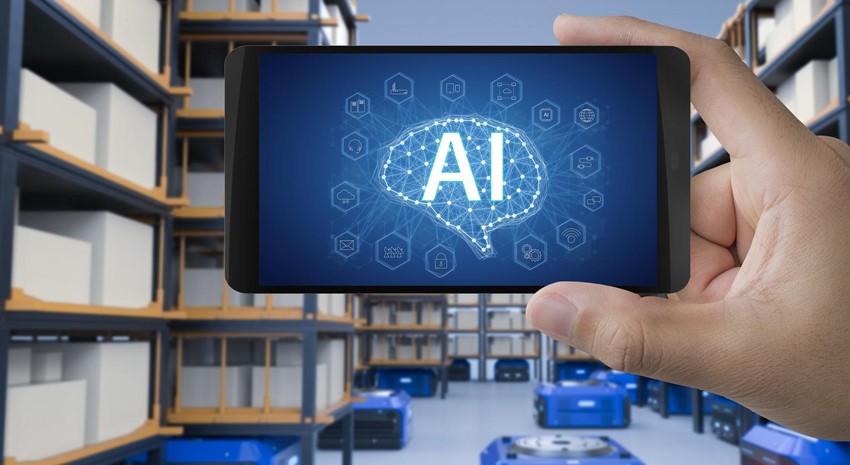The Impact of Artificial Intelligence in the Warehouse

Artificial intelligence has been an important topic of discussion, and trend to watch over the last few years, and with good reason as artificial intelligence is a disrupter and continues to change the way business is, and will be, done. The impact of artificial intelligence can be seen in almost all industries, but perhaps none more so than in the warehousing industry, a highly automated and competitive industry. This blog will provide an overview of this impact.
What is Artificial Intelligence?
Let’s start with an explanation of what we are talking about when we reference artificial intelligence. At a simplistic level, artificial intelligence (AI) is a computer that can learn. When a machine or system of machines can mimic human intelligence capabilities such as visual perception, speech recognition, and/or decision-making, that is considered AI. The abilities of AI span the spectrum from voice recognition such Siri or Alexa, to self-driving cars, or autonomous robots. The use and capabilities of AI are expanding and changing all the time.
Specific AI Technologies That Can Impact the Warehouse
Within the warehouse industry, there a few different technologies falling within the AI umbrella that can make a significant impact on a warehouse including improving inventory accuracy, supporting decision-making, and enhancing customer relations, specifically; machine learning, speech recognition, and robotics.
Machine Learning
Machine learning technologies can have a significant impact on the data collection and decision making aspects of running a warehouse. Every day a warehouse will produce incredible amounts of data from order numbers, inventory stock levels, and shipping data. Machine learning can simplify the data collection process. It can learn about the data through algorithms and patterns and subsequently suggest activities such as replenishing an item that is almost out of stock and other valuable insights.
Machine learning can also use data to predict customer needs based on orders and returns thereby improving customer service and eliminating waste: no need to order those items that are almost out of stock if no one is going to buy them.
Speech Recognition
Improvements in AI have led to more effective and useful voice-picking technology through speech recognition. Speech recognition technology can learn a warehouse employee’s voice, where they are picking any particular item, and confirm the accuracy of inventory records. Further, having the ability to use actually learn speech patterns, speech recognition technology enables workers to work hands-free and more safely.
Robotics
While it sounds like science fiction, robotic technology is not as futuristic as it sounds. Robots programmed with AI are everywhere, from places like Amazon to small distribution centers. While some robots are only able to perform simple tasks such as loading or unloading a pallet, others are capable of interacting with humans on the warehouse floor. Robots can be programmed to learn where to bring items, who to bring items to, and how to maneuver within the warehouse setting.
The use of Artificial intelligence is expanding rapidly and its impact continues to grow. As advances in AI technology continue to develop, we will see more uses for and a more significant impact from AI in the warehouse. Learn more about technology in the warehouse, or issues facing warehouses and distribution centers, and subscribe to our quarterly manufacturing newsletter to stay current on warehousing trends.
